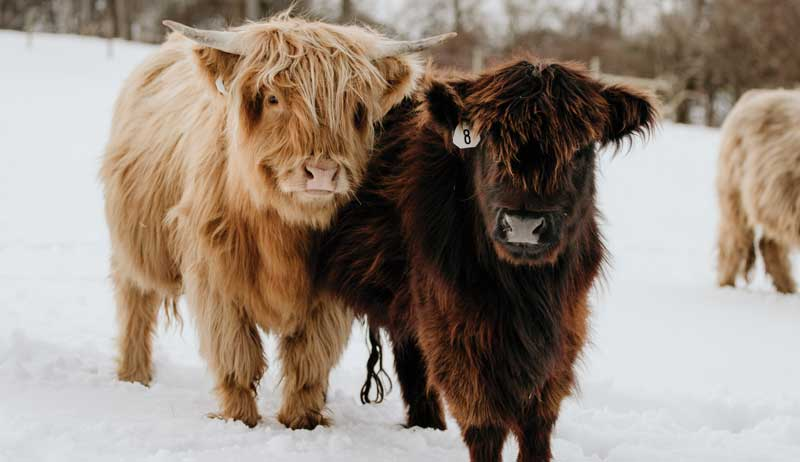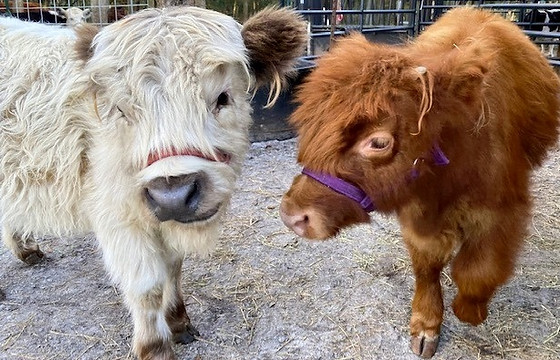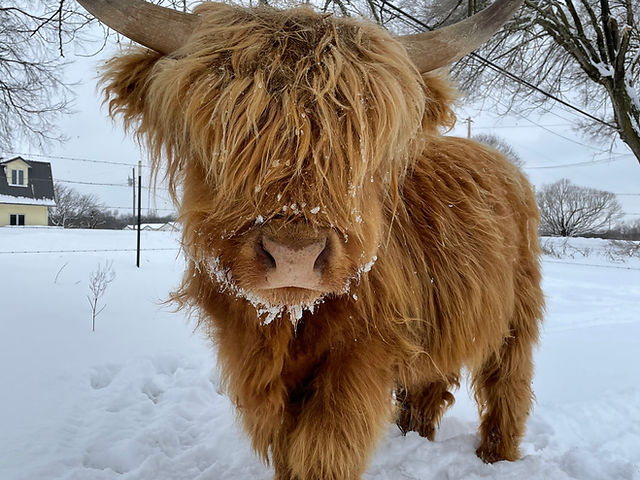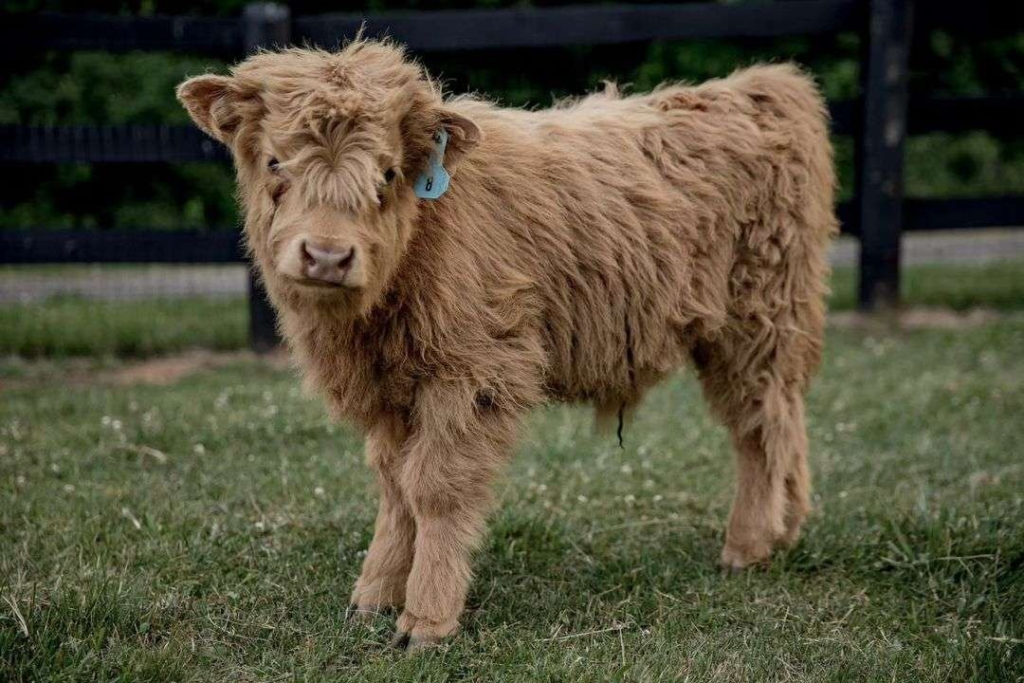How to Care for Mini Cows: A Guide for USA Homesteaders
Want to know how to care for mini cows? Miniature cows, especially Highland minis, are charming additions to USA homesteads, but they need proper care to thrive. This guide covers mini highland cow care, mini cow care tips, caring for miniature cows, and how to take care of a mini highland cow, offering practical advice for new owners. From feeding to health checks, we’ll help you keep your mini cows healthy. Start your mini cow care journey with confidence.
Table of Contents
- Why Proper Mini Cow Care Matters
- Feeding Mini Cows
- Housing and Shelter
- Health and Veterinary Care
- Handling and Socialization
- Care Comparison Table: Mini Cow Breeds
- Additional Mini Cow Care Tips
- Frequently Asked Questions
Why Proper Mini Cow Care Matters
How to care for mini cows is key to their health and longevity, as these small cattle (500–1100 lbs) have specific needs. Proper care ensures mini cows, like Highland minis, produce milk or beef sustainably while staying happy. Neglecting care can lead to health issues, increasing vet costs, per the American Veterinary Medical Association. The American Highland Cattle Association emphasizes ethical practices for mini cow welfare. Good care also strengthens bonds with owners, enhancing the homesteading experience. Learn more about mini cows on our about page.

Feeding Mini Cows
Diet Basics
Mini cow care tips start with a balanced diet of grass, hay, and supplements. Mini cows eat 1–2% of their body weight daily (10–20 lbs for a 1000-lb cow), per Penn State Extension. High-quality pasture is ideal, supplemented with hay in winter ($300–$800 yearly). Grain or minerals boost nutrition, especially for milking cows, costing $50–$150 annually. Mini highland cow care includes avoiding overfeeding to prevent obesity, common in minis.
Water and Supplements
Provide clean water daily (5–10 gallons per cow). Mineral blocks or loose minerals address deficiencies, particularly in regions with poor soil, as advised by the USDA.
Housing and Shelter
Shelter Needs
Caring for miniature cows requires a sturdy shelter to protect against weather. A three-sided barn or run-in shed (100–150 sq ft per cow) is sufficient, costing $1,000–$3,000 to build. Mini Highlands, with thick coats, tolerate cold but need shade in hot climates like Texas. Bedding, like straw ($100–$200 yearly), keeps shelters dry. The USDA recommends well-drained ground to prevent hoof issues.
Fencing and Space
Use strong fencing (e.g., woven wire or electric) to secure 1–2 acres per cow, costing $500–$2,000. Regularly inspect fences to prevent escapes, a concern noted on Reddit’s r/homesteading.

Health and Veterinary Care
Routine Care
How to take care of a mini highland cow includes annual vet visits for vaccinations and deworming ($100–$400 per cow). Common vaccines protect against bovine respiratory disease and clostridium, per the American Veterinary Medical Association. Hoof trimming ($50–$100 yearly) prevents lameness, especially in wet regions like Ohio. Monitor for parasites, as mini cows are susceptible in humid areas. Regular health checks catch issues early, saving costs.
Common Health Issues
Watch for signs of bloat, respiratory issues, or lameness, which may require vet intervention ($200–$1,000). Mini highland cow care emphasizes parasite control due to their grazing habits. Read owner stories on our testimonials page for health tips.
Handling and Socialization
Building Trust
Mini cow care tips include gentle handling to build trust, as mini cows are docile but can be skittish. Spend time daily with your cows, using calm movements and treats like grain. Halter training, starting young, eases vet visits and shows, per Penn State Extension. Mini Highlands bond well with owners, making them great for family farms. Socialization reduces stress, improving overall health.
Social Needs
Mini cows are herd animals, so keep at least two for companionship, as isolation causes stress. Regular interaction with owners or other livestock enhances their well-being.

Care Comparison Table: Mini Cow Breeds
| Breed | Feed Needs | Shelter Needs | Health Concerns | Best For |
|---|---|---|---|---|
| Mini Highland | 1–2% body weight, hay-heavy | Cold-tolerant, needs shade | Parasites, obesity | Small farms, pets |
| Mini Dexter | 1–1.5% body weight | Basic shelter, dry ground | Hoof issues, bloat | Dual-purpose farms |
| Mini Jersey | 1–2% body weight, grain | Heat-sensitive, shaded barn | Respiratory, mastitis | Dairy homesteads |
| Micro Highland | 0.5–1% body weight | Small shelter, health focus | Joint issues, dwarfism | Pet owners |
Additional Mini Cow Care Tips
Seasonal Care
How to care for mini cows varies by season. In winter, provide extra hay and warm bedding, especially in states like Michigan. In summer, ensure shade and water to prevent heat stress, critical in Florida. Caring for miniature cows includes checking pastures for toxic plants, like nightshade, per the USDA. Regular grooming keeps Mini Highland coats clean, reducing skin issues.
Beginner Advice
Start with two cows for companionship and join local homesteading groups for support, as advised on Reddit’s r/homesteading. Work with ethical breeders, like those at Mini Cows Ranch, for healthy stock. Contact us for care guidance.

Frequently Asked Questions
How to care for mini cows?
Provide balanced feed, sturdy shelter, regular vet care, and gentle handling for healthy, happy mini cows.
What’s involved in mini highland cow care?
Feed hay and minerals, offer cold-tolerant shelter, monitor parasites, and socialize for Mini Highland health.
What are mini cow care tips?
Use quality pasture, secure fencing, schedule vet visits, and handle gently to build trust with mini cows.
How does caring for miniature cows work?
It includes daily feeding, clean water, weather-appropriate housing, health checks, and social interaction.
How to take care of a mini highland cow?
Offer 1–2% body weight in feed, provide shade or bedding, vaccinate, and groom their shaggy coats.
What are common mini cow health issues?
Parasites, obesity, hoof problems, and respiratory issues require regular vet care and monitoring.
Why is mini cow care important?
Proper care ensures longevity, productivity, and welfare, making mini cows rewarding for USA homesteaders.
Conclusion
Mastering how to care for mini cows, mini highland cow care, mini cow care tips, caring for miniature cows, and how to take care of a mini highland cow ensures healthy, happy livestock. Mini cows, especially Highlands, thrive with proper feeding, housing, and health care. Commit to ethical practices for a rewarding experience. Visit our contact page or read stories on our testimonials page.
Sources
- American Highland Cattle Association: https://www.highlandcattle.org/
- USDA: https://www.usda.gov/
- Penn State Extension: https://extension.psu.edu/
- Mini Cows Ranch: https://minicowsranch.com/
